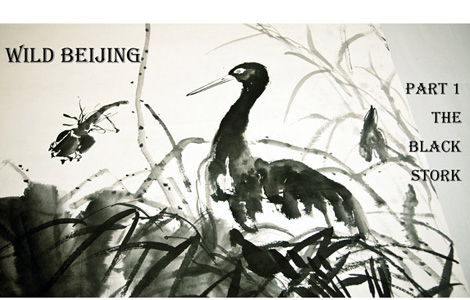China's EU wine probe sparks worries
Updated: 2013-06-13 07:35
By Li Xiang in Paris (China Daily)
|
||||||||
France has been pushed to the forefront of the trade dispute between China and the European Union, as friction deepened after Beijing announced it has launched an investigation into EU wine imports.
Beijing's move on Wednesday has sparked concern and anxiety among government officials and wine exporters in France, Europe's largest wine exporter to China.
French President Francois Hollande expressed alarm at the latest development in Sino-EU trade friction and called for a special meeting of EU member states to create a cohesive and united position in trade negotiations with China.
China's announcement came after the European Commission's decision to levy punitive tariffs on the country's solar panel products.
France is one of only four EU nations that voted in favor of the anti-dumping taxes of 11.8 percent, which will be in effect from now until August, after which they will be extended to 47.6 percent for another four months.
The other three countries that voted for the taxes were Italy, Portugal and Lithuania.
The Ministry of Commerce in Beijing said that the wine investigation is not a retaliatory measure, but experts believe that France likely will be hurt the most if Beijing implements tough rules on EU wine imports.
French wine exporters said that they have already started to see order delays from Chinese importers. Some speculate that French wines priced between 1 to 3 euros ($1.33 to $3.98) might be taxed.
"China's move has created a feeling of anxiety in the French wine industry. Our orders might be delayed as our Chinese importers are waiting for the final decision," said Jean-Pierre Rousseau, managing director of Diva Bordeaux, a major wine exporter in Bordeaux.
China is the third-largest market for French wines, with an estimated value of 800 million euros. The value of the Chinese market accounts for nearly 30 percent of Bordeaux's total wine exports.
Experts said that a compromise and collaborative agreement between China and the EU are necessary to resolve the dispute.
"In the solar panel case and the wine case, we are at the first steps of investigations on both sides. Thus, a mutually acceptable compromise will be negotiated more or less rapidly because a trade war would be too damaging to both sides," said Jean-Paul Larcon, a professor at French business school Ecole des Hautes Etudes Commerciales de Paris.
Larcon said the French position in favor of the penalty on Chinese solar exports can be explained by the country's internal debate on its energy policy and the need to diversify energy sources.
"French companies have a strong competitive advantage in the nuclear energy sector, but they are quite week in the solar energy sector. So the French position aims to protect French companies in this area," he said.
Francoise Nicolas, director of the Center for Asia Studies at the French Institute of International Relations, said that the objective of the tariffs is to engage a dialogue with China, as the imposed duties on the solar panels give Beijing time to come to the negotiating table.
"Unlike Germany, I suppose France thinks that there is a need to put stronger pressure to get Beijing to accept discussion and that simple requests are no longer enough," she said.
Some are concerned that the trade dispute may put fragile Sino-French relations at risk even though Hollande visited China less than two months ago in hopes of strengthening ties with the Chinese new leadership.
"It is not a minor dispute but it should not hide the very well-established long-term cooperation between China and France in the political, economic and cultural domain," Larcon said.
"China and France will find a positive solution to the current dispute because of the potential of mutually beneficial collaboration and the interests of French companies," he said.
lixiang@chinadaily.com.cn
(China Daily USA 06/13/2013 page14)
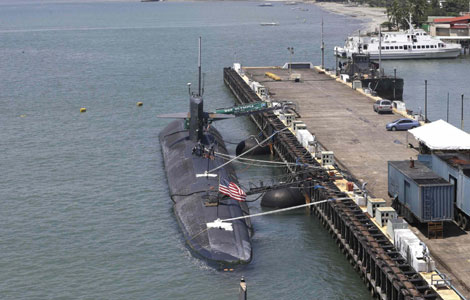
 Philippine, US start Naval exercise in S China Sea
Philippine, US start Naval exercise in S China Sea
 Supreme Court gay rights ruling celebrated across US
Supreme Court gay rights ruling celebrated across US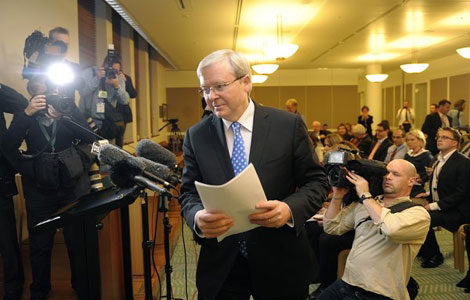
 Rudd returns as Australian PM after Gillard
Rudd returns as Australian PM after Gillard
 Brazil protests intensify before Confed Cup semifinal
Brazil protests intensify before Confed Cup semifinal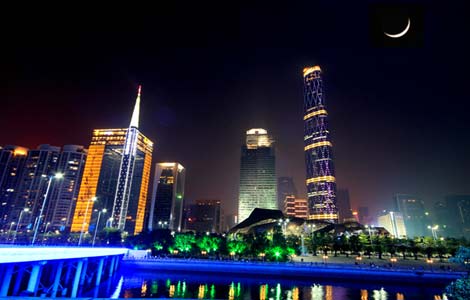
 Long lost weekend
Long lost weekend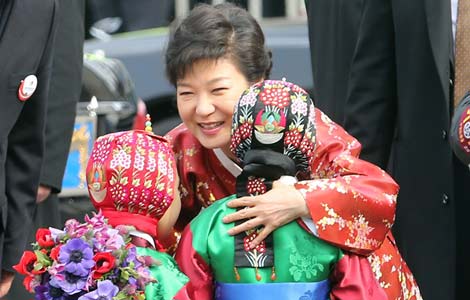
 Park ready to charm China
Park ready to charm China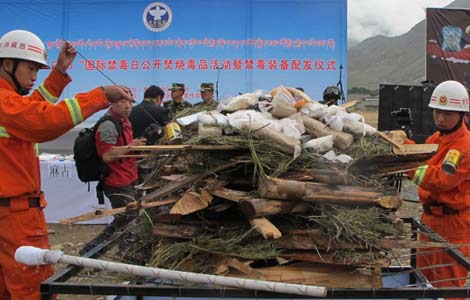
 Prices climb as police crack down
Prices climb as police crack down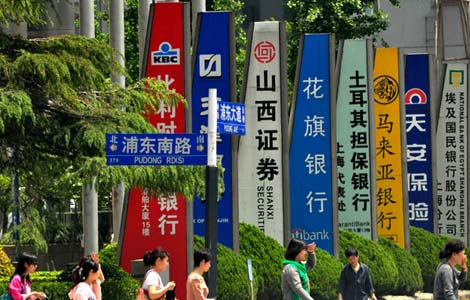
 China 'most promising' in FDI
China 'most promising' in FDI
Most Viewed
Editor's Picks

|

|

|

|

|

|
Today's Top News
Proposed law puts curbs on family visas
Markets will stay volatile, continue to struggle: Expert
Promising outlook on US, China investment
US adoptees visit Chinese roots
Ecuador refutes Washington Post accusation
IBM to make Chinese job cuts
PBOC ends credit crunch, to go further
Snowden still at Moscow's airport, asylum pending
US Weekly

|

|
